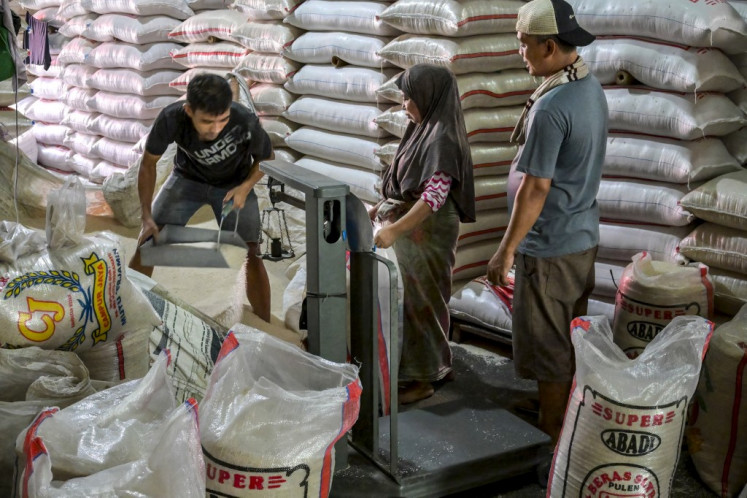Popular Reads
Top Results
Can't find what you're looking for?
View all search resultsPopular Reads
Top Results
Can't find what you're looking for?
View all search resultsTaking shortcut to fortune, they became victims of superstition
Superstition is still alive and well in urban areas, including Greater Jakarta and, in some cases, it even leads people to commit crime
Change text size
Gift Premium Articles
to Anyone
S
uperstition is still alive and well in urban areas, including Greater Jakarta and, in some cases, it even leads people to commit crime.
Earlier this month, Tanah Abang Police arrested Tukiyono Ardianto for allegedly defrauding people using jenglot, a magical amulet in the shape of a small humanoid creature believed to have supernatural powers.
Tukiyono, who was arrested on March 19, had declared himself as a shaman and claimed to have the ability to multiply money.
The Karet Tengsin subdistrict resident had allegedly deceived, among many others, a married couple, Mulyana and Tri Maryati.
“The couple visited Yono’s rented house on Feb. 22 and asked him to multiply the Rp 10 million [US$730] they brought that day,” Tanah Abang Police chief Adj. Sr. Comr. Lukman Cahyono said.
“Mulyana and Tri Maryati followed Yono’s suggestions after a ritual.
“Yono took the money into his room and came out with a shroud and a box he claimed containing the jenglot,” he said.
Yono then took the next step of his ritual, Lukman added, to a river next to the Karet Bivak public cemetery in Karet Tengsin, Central Jakarta, where he asked Mulyana to throw the shroud into the river, but keep the box with the jenglot inside it.
“Yono allegedly told his victims that their money would multiply within 40 days. It turned out, they were fooled by him,” Lukman said.
In January, an angkot (public minivan) driver, M. Urfan, of Ciputat, South Tangerang, was nabbed by the police after stealing strings that bound the corpse of his friend, Suhendra. In Islam, a corpse is wrapped in a pocong (shroud) and tied with strings before being buried.
According to superstitious beliefs, a body wrapped in a pocong possesses supernatural powers.
Urfan allegedly dug up Suhendra’s grave and stole the pocong strings.
“Urfan told [the police] that his fellow angkot drivers had become prosperous after using pocong strings as amulets, hence he wanted it to increase the number of passengers using his service,” said South Tangerang Police chief Sr. Comr. Fadli Widianto.
A sociologist from the University of Indonesia (UI), Risa Permana Deli, said such supernatural beliefs continued to exist in society.
“People from generation to generation will keep telling and passing down superstitions.
“Some people leave [these stories] behind, while others believe they still exist,” she told The Jakarta Post.
Among several superstitious rituals that were still practiced in Indonesia, Risa added, was slametan, a communal feast held to celebrate various occurrences.
Slametan is frequently held to celebrate several stages in life (the fourth and seventh month of pregnancy, birth, circumcision, marriage and death), religious events under the Islamic calendar and other special occasions.










